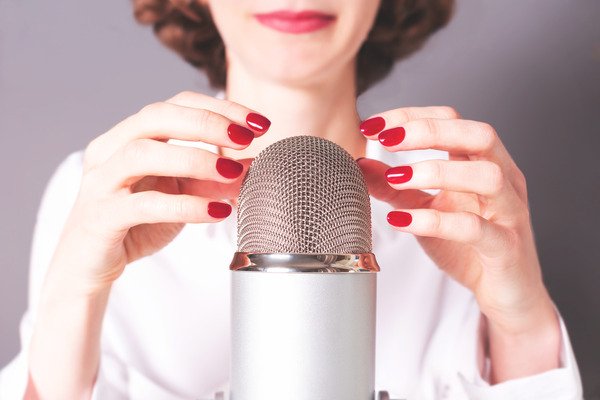Imagine that in the cooking recipes they did not include the ingredients, or that to learn to dance a tango they explained in writing “6 tips for dancing a tango”, without images, photos, videos or drawings. Nothing. I could explain the logic of why you have to use the pan and not the oven, but without the ingredients it’s going to be quite difficult for you to cook the recipe anyway, right?
Well, if that seems difficult to you, I assure you that everyone can learn to make a carrot cake in a couple of tries, and everyone can memorize the steps of a tango by repeating them with their own feet over and over again. And on the contrary, there are people who spend years trying to overcome depression or a personality problem. And yet, while a written article is not even remotely about teaching you how to dance, they do believe that in five minutes of reading they can change your life. But not. And although it is difficult for us to admit it, It’s the same deception as self-help books.
The importance of experiential learning
Let’s see, you learn to walk by walking, to speak you learn by talking, to write you learn by writing, to swim you learn by swimming. Starting from that basis, it is unlikely that by reading a book you can overcome a problem that you have had for a good part of your existence. I don’t want to be a spoilsport, but these types of problems drag emotions and behaviors. Just as a book is not going to teach you how to dance or drive, a book is not going to teach you how to practice behaviors that are not even in your usual repertoire of behaviors. No book teaches you how to face fear, nor can it do it for you. It is something that you have to do and it is not easy, because if we could choose, we would not feel sadness, fear or anxiety about certain things and our life would be simpler. If you could choose, you would surely lead the life you want because no emotion would be an obstacle.
Self-help books tell you things like “do things that encourage you,” “seek support from your loved ones,” “be more positive, look at everything from the point of view that we explain below.” But this has two drawbacks.
Lack of individual treatment
First of all, have you thought about whether the behaviors the book talks about are going to help you? I mean, if they are going to help you personally. Psychological treatments are individual for a reason: It is analyzed what that patient values and what causes him discomfort, how and why. To him and not to another. Self-help books are sold like holy water to everyone. For example, the behavior of establishing relationships and creating a greater support network: this idea of showing off our gregariousness that many self-help manuals include in reality does not suit everyone.
Although studies show that people with more positive social relationships are generally happier, introverts do not particularly enjoy getting together with large groups of friends to do things together, in fact they enjoy a good book and low external stimulation more. So maybe the problem with your sadness is not that you need more people in your life or that you have to interact more with them.
What if you have the right people around you but you don’t know how to express yourself with them on certain occasions? To begin with, this is a different problem that some people may associate with not having adequate social skills, but in reality it may be because they experience anxiety in certain contexts, and then the problem is anxiety. But For this it is necessary to analyze in depth what is happening and propose concrete solutions for that problem. Relating to people outside your circle is not the solution then, nor is maintaining interest in someone who really does not interest you. More is not better. Not to be happy, not to relate better, not to have less anxiety, not for anything. And sometimes what is missing is not the what, but the how. Self-help books are usually quite general in dealing with certain difficulties and therefore insufficient.
Lack of experiential learning
Secondly, these limitations entail attitudinal learning that a book does not provide. No reading can adequately teach you learning behaviors, or emotions and attitudes. The knowledge transmitted by readings is semantic and therefore can produce learning at a cognitive level. It’s like a book teaching you how to drive: it’s procedural learning, you have to practice to learn how to drive, no book is enough.
This means that self-help texts and tips teach you a new theoretical perspective and allow you to store knowledge about what could lead you to happiness, but you do not integrate them into your behavioral pattern. It’s like a very glib teacher explaining history to you. Ok, you may remember it great, but it is still semantic knowledge (of data and facts that are objective and alien to you, because no self-help book is personalized).
What really produces a change, a learning, is personal experience, your autobiographical memory, since it is endowed with a strong emotional charge, both good and bad. And both your virtues and your defects come from there, that means that the environmental opportunities (situations, people…) that you come across and what you do in each situation you face, have a greater impact and influence. in your personality and in your personal and attitudinal changes than any self-help book will ever have.
Now think that every day you go through more or less the same situations, you interact more or less with the same people and you act in your environment in more or less the same way as yesterday or the day before yesterday. Einstein said “if you want different results, don’t always do the same thing” and this hides the terrifying reality that you are an active agent of your own personal change, not a passive agent, it is your behavior that is the only one that matters to obtain the prize: being more sociable, being happier… Well, your behavior and the environmental opportunities, it is 50/50, but you cannot control the environment, only the way in which you you respond. Thinking differently is not synonymous with acting differently, because between thoughts and actions there is a barrier: emotions.
That is, I may be aware that I have to study to pass (I know the behavior I have to carry out), but the emotion of boredom, apathy or lack of motivation prevents me from carrying out that behavior. I may know that to get a job I have to have a job interview with the boss, but talking to the boss makes me anxious and afraid, and I decide not to do it. A self-help book tells you “talk to your boss” or it tells you “talk to strangers to be more sociable” or “get out of bed to overcome depression sooner,” but it doesn’t tell you how to overcome emotional barriers to do what you want. You already knew in advance what you had to do. And I’m talking about actually overcoming them, I’m not talking about a motivational speech that fades from your head the next day. If that speech were effective, you would never need a self-help book again. But to overcome them you have to do things. And that “doing” costs a lot.
There are no magic self-help recipes.
It’s much easier to read a book, right? How tempting the hope that without much effort you and your life will change forever. And so immediately, when you start reading, you gain greater control over your own life. You are already doing something by and for yourself, and that makes you feel better, but it does not change you, it does not make you more sociable or happier in the long term, and that is why you read another and another and another… Because momentarily it is a negative reinforcement which reduces your discomfort and gives you some sense of control (the illusion of control, a common cognitive illusion derived from an optimism bias). It is, in short, a placebo.
The most sociable and happy people do not read those books or articles, but they have never needed to read them, because To be happier and more sociable you learn through experience. There is no correlation between being sociable or happy and the number of self-help books you read. It is something that one builds by relating, living experiences and trying to act with respect to his personal values and the life he wants to lead. And changing your behavior when you are not getting the desired results.
Progress requires effort
There is another reality that you are not going to like either: changing hurts, restructuring your mental representations about the world, about yourself, about society, hurts. There are restructuring therapies aimed at reconstructing the conception of the Self and relationships with others that profoundly modify the meaning of many knowledges and behaviors. risking our cognitive identity. Changing these representations for more effective ones for oneself is very costly, demanding and even causes anxiety.
The discomfort we feel and that moves us to modify our ideas and our behavior is part of that learning: it means discovering and rethinking our representations when the implicit expectations we had about the world are violated. And it is complicated in the social and psychological world. For example, modifying the idea that the earth is flat with the new representation that it is round was difficult a few centuries ago (in fact it is difficult with many semantic ideas about theories of the world: is homeopathy effective? The evolution of species is real? Many people will give you one answer and some will give you another regardless of what the data says, and it is their representations, their interpretation of the world).
However, It is much more difficult to accept other types of ideas, such as that your partner is unfaithful to you and you should leave it, that you really are not comfortable with the people around you and that is why you do not have adequate communication with them, that your friends are not real because deep down you have different values, or that the path you have taken chosen professionally has stagnated and you should dedicate yourself to something else… All of these ideas hurt and all of them hide underlying problems that can affect happiness or social skills, indirect problems that are the ones that really should be addressed more than “how to be a more sociable person” or “how to be more positive”.
To make matters worse, it is common that when we detect these inconsistencies that cause us discomfort between the social world and personal representations, these are so reinforced and consolidated with the implicit learning processes that are very difficult to modify. The change is even more expensive.
In conclusion
Change is not easy. Believing that change is easy is an easy idea to sell given that it is what many would like, but accepting this advertising slogan also has a cost: guilt. After reading a self-help book, you might ask yourself “if it is so easy, why am I not achieving it?”
Guilt is also an easy trap, since it is not a writer who sells you this idea, nor many, nor all psychologists, nor the “coaches”; It is society: from those who sell adventure, free spirit and youth when they sell perfumes and cars (“if you buy this, you will be cooler”), those who defend that the world is a meritocracy and that you only have to work hard to get what you want. you want without standing on your feet (like positive psychology), even people who deceive themselves under the pretext of not having problems or limitations, neither in their social life nor in anything else because they do such a thing and advise you without taking into account who It is you, that is, without empathizing with your emotions or circumstances.
AND There they are, each person’s emotions, fears and anxiety playing a crucial role that everyone decides to ignore. Transmitting learning is more than explaining your version of events, no matter how much scientific and empirical support it has. I can explain to you that to start a car you have to insert the key, turn it, release the handbrake and so on, and they are objective and real facts, but until you are the one who inserts the key and until you do it a few times in You’re not really going to know how to start a car. And in the same way, it won’t take away your happiness either.









